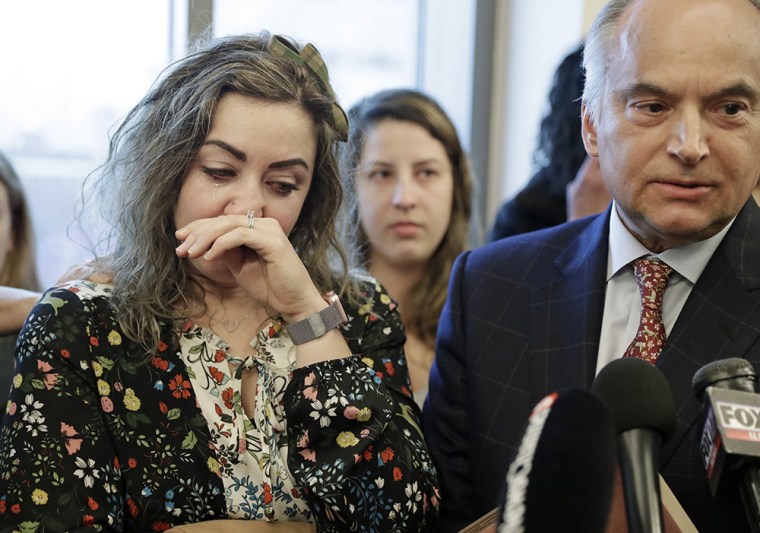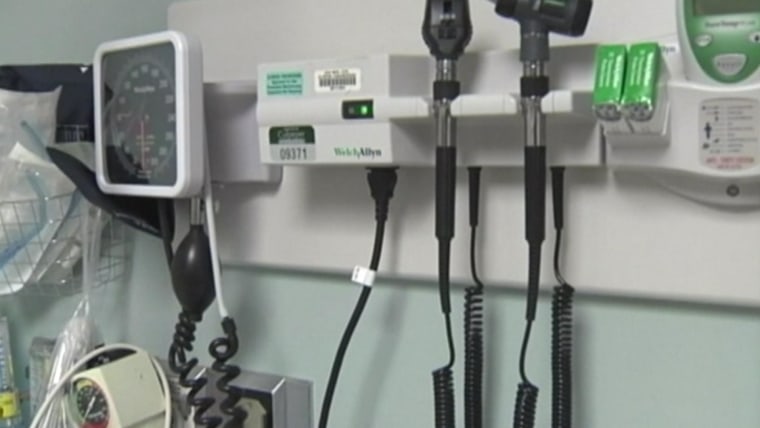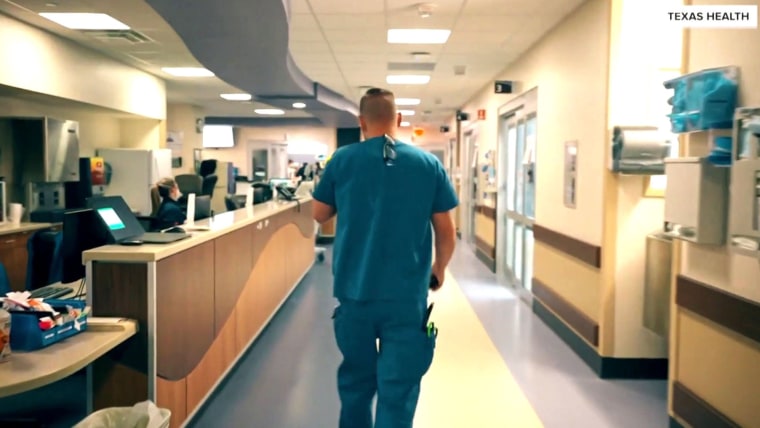If a nurse makes a medical error that causes your loved one to get sick or die, should she be held criminally liable and go to prison?
It’s a question at the center of a heated debate as former Tennessee nurse RaDonda Vaught is set to be sentenced this month for her role in a patient’s death.
On March 25, a jury in Nashville found Vaught guilty of criminally negligent homicide and gross neglect of an impaired adult for injecting a 75-year-old woman with the wrong medication in 2017. The patient, Charlene Murphey, died the next day at Vanderbilt University Medical Center, according to the Associated Press.
Vaught fully admitted what happened to hospital staff at the time of the event, her attorney said during the trial’s opening statements.
Vaught did what she was supposed to — report her mistake so that it could be avoided in the future — and her unintentional medical error should not be considered a crime, said Janie Harvey Garner, founder of Show Me Your Stethoscope, an advocacy and support group for nurses.
Such cases have always been handled with administrative discipline, leading to the nurse’s license being suspended or revoked, Garner noted. It’s “unheard of” for a nurse’s unintentional mistake to be prosecuted as a crime, she added.
“Nobody comes to work and decides they’re going to kill a patient that day except somebody who really does need to be in prison, like a serial killer nurse,” Garner told TODAY.
“Nurses will no longer admit medical mistakes if they can go to prison… this is going to make it really less safe for patients in the hospital.”
The American Nurses Association said it was “deeply distressed” by the verdict.
“Health care delivery is highly complex. It is inevitable that mistakes will happen, and systems will fail. It is completely unrealistic to think otherwise. The criminalization of medical errors is unnerving, and this verdict sets into motion a dangerous precedent,” it noted in a statement.
Punishing medical workers who make honest errors “drives problems into the shadows and decreases patient safety,” the American Association of Critical-Care Nurses said.
“This case has further demoralized an already exhausted and overworked nursing workforce in the face of existing nurse staffing shortages.”
Robyn Begley, chief nursing officer for the American Hospital Association, predicted the case would have a “chilling effect on the culture of safety in health care” because it would discourage medical staff from coming forward with their mistakes.
‘Gross neglect’
But the prosecutor’s office and the family of the woman who died said it was the right decision.
“Our family is still traumatized and grieve over Mom’s horrible death. We are thankful the District Attorney’s Office obtained justice for us in court,” said Chandra Murphey, the patient’s daughter-in-law, in a statement sent to TODAY.
“The jury’s conviction of Radonda Vaught was not an indictment against the nursing profession or the medical community. This case was, and always has been about the gross neglect by Radonda Vaught that caused the death of Charlene Murphey,” the district attorney’s office said in the statement.
TODAY has reached out Vaught’s representatives for comment, but hasn’t received a response.
Murphey was taken to Vanderbilt University Medical Center with bleeding in her brain at Christmastime in 2017, according to the prosecution’s opening statements at the trial. When she was about to undergo a PET scan, she was prescribed Versed, a medication to relieve anxiety, because she was claustrophobic and afraid to go into the tube-like machine, according to the opening statements.
But Vaught instead injected her with vecuronium, a paralyzing drug given only when a patient is intubated because it leaves a person unable to breathe, the prosecution said.
In an interview with the Tennessee Bureau of Investigation, Vaught said she couldn’t find Versed in Murphey’s profile when she went to get it from an automated medication dispensing cabinet. So she overrode the system, typed in “VE” and selected the first medication, vecuronium, in the list.
She admitted she should not have overridden the system, though it was common to do so, and should have recognized the difference between the two drugs, according to the TBI report.

After Murphey was injected with the wrong drug, she quickly became paralyzed — awake, but unable to move and call for help — and suffocated over a 30 minute period, District Attorney General Glenn Funk said in a statement. She was found unresponsive and died the next day, Funk said.
Funk outlined 18 instances “amounting to gross neglect” that caused Murphey’s death, including Vaught overriding the system, never visually checking the medication, disregarding the sticker that read “Warning: Paralyzing Agent” and not monitoring the patient’s reaction to the drug.
But Vaught’s attorney argued it was common for nurses at Vanderbilt University Medical Center to do overrides as a way to deal with the “systemic problem” of different software systems at the hospital not communicating with each other. Vanderbilt University Medical Center declined to comment for this story.
A full timeline of the complicated events in the case was published by the Nashville Tennessean.
A spokesperson for the National Patient Advocate Foundation, an organization that helps patients advocate for affordable, quality medical care, declined to comment on this case in particular, but said she hears from families every year who have lost a loved one to a medical malpractice.
“On their behalf, I think it’s dismissive to call something that results in death just a mistake that shouldn’t have real consequences,” Caitlin Donovan told TODAY.
“That being said, I would hope that the long term consequences of this case would be increased staffing, more reasonable hours and other safety measures.”
The toll of medical errors
More than 250,000 people in the U.S. die every year because of what a Johns Hopkins study identifies as medical mistakes, making it the third leading cause of death after heart disease and cancer, the study found.
Health care workers are taught to never be afraid to come forward with a mistake as part of a practice called Just Culture, said Garner, the founder of Show Me Your Stethoscope.
The focus is on finding out why the error happened and figuring out a way to fix it so it never happens again, rather than punishing someone.
“Most of the time, nobody is going to know that a medication error was made. Any near-miss I have ever made, I have reported myself because it’s important to do so to fix the system,” she noted.
Vaught made an “egregious mistake,” but she was scapegoated for systemic shortcomings, Garner said. Hospitals are dealing with broken technology, forcing nurses to do work arounds, which needs to change to prevent medical errors, Garner noted.
She has spoken to nurses who quit their jobs after the verdict because they’re afraid to go to prison for making an unintentional mistake, she said.
“Vaught was not actually judged by a jury of her peers because her peers would have been 12 ICU nurses,” Garner noted. “Her punishment should be that she can’t practice as a nurse anymore.”
Vaught will be sentenced on May 13. She faces three to six years in prison on the gross neglect conviction and one to two years on the criminally negligent homicide conviction.


